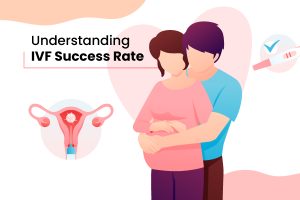Five Vital Facts about In vitro fertilization (IVF)

In vitro fertilization (IVF) has come as a real hope for many despondent couples who desperately desire a baby. It is an assisted reproductive technology (ART) which involves retrieval of female eggs and male sperms, fertilization of the two in the lab (in the right environment) and then placing of the fertilized egg into the uterus of the woman. IVF uses modern and effective diagnostic and screening procedures in order to ensure successful conception and healthy pregnancy.
IVF treatment has to its credit good success record and hence is a highly recommended infertility treatment. In order to know whether IVF treatment is right for you or not you just need to go through some basic, non-invasive tests.
Following are some of the important facts about IVF that will enhance your knowledge about this treatment:
- IVF Success Rates: You may have read about success rates of different fertility clinics and gathered some related information from health journals. But the fact is that every case is different and hence an individual’s success rate varies depending upon the nature of the fertility complication along with the age factor. You must understand that your chances of conception increases with each completed cycle. The more you do, the greater are the chances of success.
- Fertility declines significantly in late 30s: The success rate of any assisted reproductive treatment for pregnancy (including IVF and other infertility treatments) goes on decreasing with increased age. This is because the quality and health of the egg deteriorates with age. It starts to decline when you are 35 years and drops further after 37. There are always exceptions to the rules. There are women in 40’s that have seen success but in majority cases it gets harder to achieve success in assisted pregnancies with the growing age of the woman.
- There are greater chances of multiple pregnancies: In cases of natural pregnancies, the chances of twin births are very low, nearly 3% to 4%. But pregnancies that are assisted by reproductive treatments like IVF, the possibilities of multiple pregnancies can go up to 33%. This is because fertility clinics use double embryo transfer method in order to increase the chances of pregnancy. Currently there is a limit of two embryo transfer in women below the age of 40 and three in those who are above 40.
- Frozen embryos are as successful as fresh ones for IVF: Vetrification is the latest breakthrough in the field of ART (assisted reproductive technology). It employs very rapid cooling techniques for embryo freezing which prevents formation of ice crystal within the embryo during freezing. It facilitates the usage of frozen embryos as fresh ones in assisted pregnancies. Patients undergoing IVF treatment have equally good chances of getting pregnant with a frozen embryo as from a fresh one. However, it is important to know that eggs frozen at early age have better viability.
- Success Rate: Although IVF has been very successful in overcoming several infertility issues like low sperm count, blocked tubes and PCOS, there is no guarantee that it will always work. There are several known facts related to pregnancy issues as well as some unexplained infertility complications which is difficult to track. However, this should not discourage you from going for IVF (or any other infertility) treatment. The good news is that success rates of IVF continue to improve, so if you or your partner has any infertility related issue and if other infertility treatments have not been successful then IVF is the right option for you.








